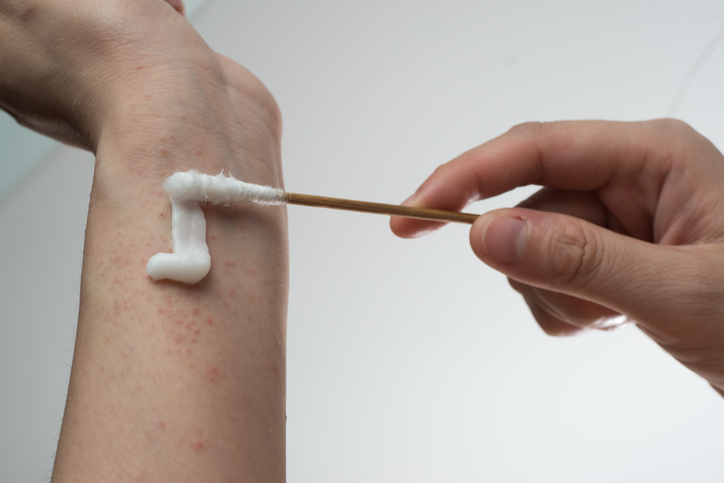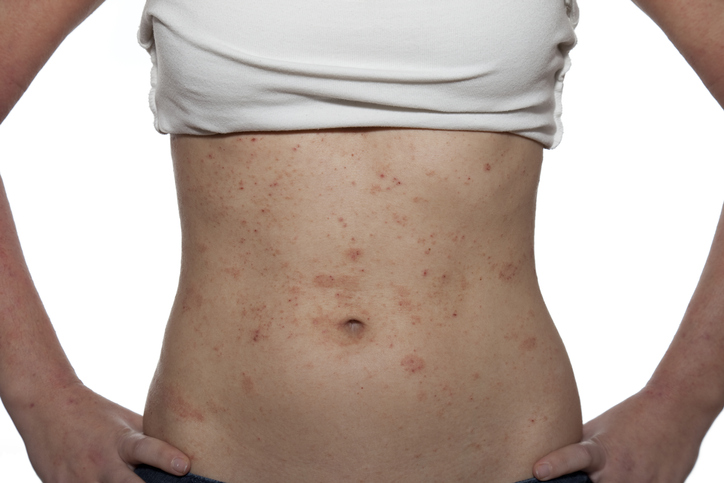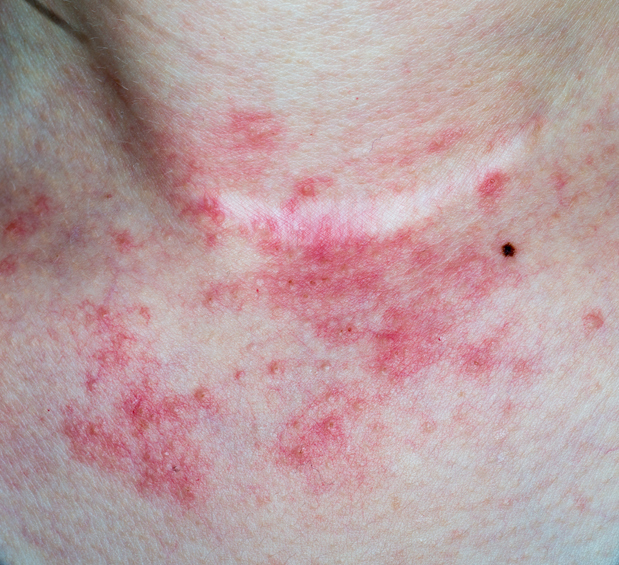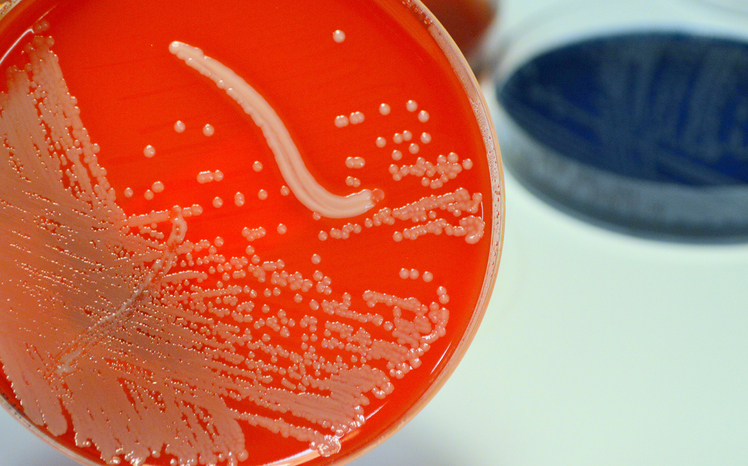Pain
Conventional Medical Treatments for Eczema

What is eczema?
Eczema is the medical term used for a group of health conditions characterized by inflamed, irritated, itchy patches of skin. It can develop at any age, and approximately one in 10 people will develop some type of eczema in their lifetime. It is generally a chronic (long-term) condition that involves periodic flare-ups; however, it can also be acute (short-term).
There are various types of eczema. However, atopic dermatitis is the most common form, and the two terms are often used interchangeably.
Treatments
Although there is currently no cure for eczema, treatments can help control itching, reduce inflammation, repair the skin, and fight or prevent infection. Conventional medical treatments for eczema include corticosteroids, antibiotics and antihistamines.
Medication options
- Oral antihistamines help control itching by blocking histamine (a natural chemical in the body involved in immune system responses). Examples of oral antihistamines include diphenhydramine, cetirizine and loratadine. They can be especially helpful to prevent nighttime itching that interferes with sleep.
- Corticosteroid creams or ointments can be applied to the skin to relieve itching, reduce inflammation, and help with scaly skin. For severe eczema, oral corticosteroids may be prescribed.
- Antibiotics may be prescribed if a bacterial infection is present in the skin or if there are open sores or cracks. Topical or oral antibiotics may be prescribed.
- Crisaborole topical, a PDE-4 inhibitor, is a prescription non-steroidal anti-inflammatory medication that reduces inflammation and helps to normalize the appearance of the skin.
- Calcineurin inhibitors, specifically tacrolimus and pimecrolimus, are topical medications that can be prescribed if corticosteroids do not work or cause side effects. They work to reduce inflammation.
- Immunosuppressants help suppress an overactive immune system. They ease itching in order to allow the skin to heal. Examples include cyclosporine and methotrexate.
- Biologics can be prescribed to treat severe eczema that does not respond well to other treatments. They calm the immune system and reduce itching. An example is an injectable medication called dupilumab.
- Barrier repair moisturizers lock water into the skin, which reduces eczema symptoms and helps repair skin damage. They are available over-the-counter or by prescription.
Phototherapy options
UV light is a treatment option for moderate to severe eczema. UV rays help calm the immune system’s overreaction. As UV rays can damage the skin or cause skin cancer, the lowest dosage is used. Phototherapy is an option for widespread or localized eczema that has not responded to topical treatment.
- UV light therapy involves exposing the skin to UVA rays, UVB rays, or a combination of both. The treatment is done in a doctor’s office, typically two to five times per week.
- PUVA therapy involves the use of psoralen (a medication that makes the skin sensitive to UVA light) while undergoing UV light therapy. It’s used when UV therapy alone is not successful in reducing symptoms.
















